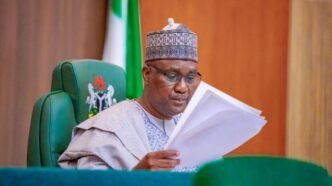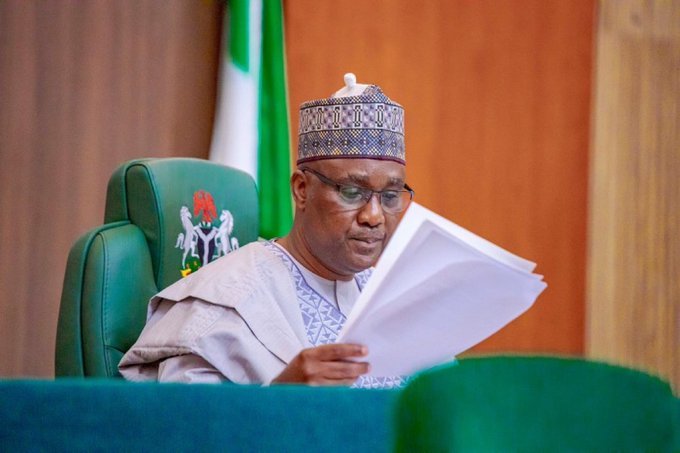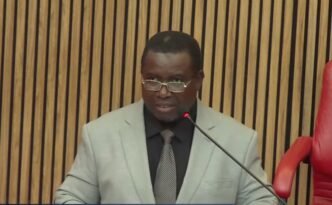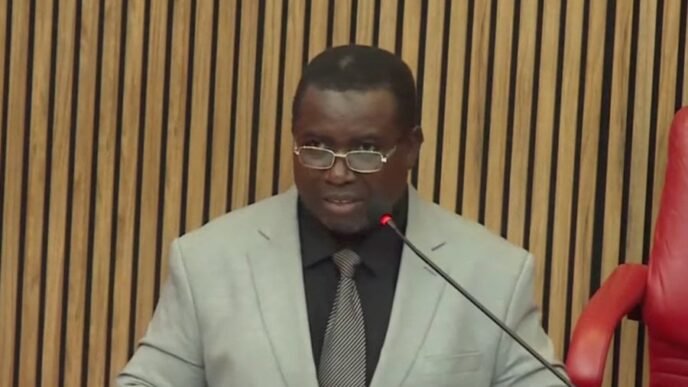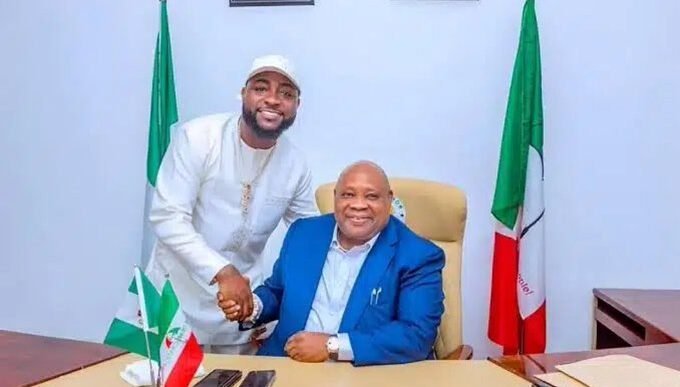Abuja, Nigeria — October 21, 2025
The Speaker of the House of Representatives, Rt. Hon. Tajudeen Abbas, has called on the Government of Algeria to grant visa-free entry to Nigerians, in a move aimed at strengthening bilateral trade, academic exchange, and research collaboration between both countries.
Speaker Abbas made the appeal on Tuesday during a courtesy visit by the Algerian Ambassador to Nigeria, Mr. Hocine Latli, at the National Assembly complex in Abuja. The meeting focused on enhancing diplomatic, economic, and cultural relations between the two African nations.
Strengthening Nigeria–Algeria Relations
Speaking during the engagement, Abbas emphasized that visa-free access or an eased visa regime would help promote greater people-to-people interaction, stimulate trade growth, and foster research partnerships between Nigerian and Algerian institutions.
“Nigeria and Algeria share a long-standing friendship and common aspirations as members of the African Union and OPEC. It is time we deepen our cooperation by removing barriers to the free movement of people, especially for entrepreneurs, researchers, and students,” Abbas said.
He explained that while both countries have maintained diplomatic relations for decades, trade volume remains below potential, largely due to travel restrictions, limited connectivity, and bureaucratic visa processes.
“We need to build a new framework for African cooperation that prioritizes integration and mutual economic empowerment,” he added.
Call for Academic and Research Collaboration
The Speaker also proposed that Nigerian universities and research institutions collaborate more closely with their Algerian counterparts, especially in fields such as renewable energy, desertification control, agriculture, and engineering.
According to him, both countries possess complementary strengths that, if harnessed through joint research and innovation programs, could transform the continent’s technological and agricultural landscape.
“Our universities can learn from Algeria’s advancements in renewable energy, while Nigeria can share expertise in ICT, creative industries, and agricultural innovation,” he noted. “A visa-free or simplified visa policy will make these exchanges seamless and productive.”
Algeria’s Role in African Integration
In his remarks, the Algerian Ambassador, Mr. Hocine Latli, commended Nigeria’s leadership role in Africa, especially its contributions to peacekeeping and continental development.
He expressed Algeria’s readiness to work with Nigeria to strengthen bilateral relations and explore new areas of cooperation in trade, security, and education.
“Algeria recognizes Nigeria as a key partner in Africa. We share the same vision for unity, progress, and self-reliance. Our governments are committed to expanding collaboration at all levels,” Latli said.
The envoy hinted that discussions on bilateral visa reforms could take place under the framework of the Nigeria–Algeria Joint Commission, which is expected to reconvene in 2026 after several years of inactivity.
Boosting Intra-African Trade
Speaker Abbas also used the opportunity to reaffirm Nigeria’s commitment to the African Continental Free Trade Area (AfCFTA), which aims to eliminate trade barriers across the continent and promote regional economic growth.
He said a visa-free arrangement between Nigeria and Algeria would align perfectly with the AfCFTA’s goals of facilitating the free movement of goods, services, and persons across Africa.
“We cannot talk about AfCFTA and still have restrictive visa policies among African countries. Visa-free access between Nigeria and Algeria will be a practical step toward realizing the objectives of African integration,” Abbas stated.
Economic and Cultural Benefits
Experts say easier travel between Nigeria and Algeria could open up vast opportunities in agriculture, energy, construction, manufacturing, and tourism.
Nigeria, Africa’s largest economy, and Algeria, one of the continent’s top energy producers, have significant potential for joint ventures in oil and gas, renewable energy development, and infrastructure projects.
Cultural and educational exchanges could also benefit from such a policy, as thousands of Nigerian students seek opportunities for higher education and professional training across Africa and the Middle East.
Dr. Zainab Ali, an economist and international relations analyst, said Speaker Abbas’s proposal is both timely and strategic.
“With growing emphasis on African unity and trade self-sufficiency, removing visa restrictions between major economies like Nigeria and Algeria could serve as a model for other African states,” she said.
Nigeria–Algeria Relations in Perspective
Nigeria and Algeria established diplomatic relations shortly after Nigeria’s independence in 1960. Both nations have maintained strong ties through shared membership in organizations such as the African Union (AU), Organization of the Petroleum Exporting Countries (OPEC), and the Non-Aligned Movement.
Over the years, they have collaborated on security and counterterrorism initiatives, particularly in combating terrorist networks in the Sahel region. However, bilateral trade has remained modest, with experts estimating that annual trade volume between both countries is below $200 million, far less than potential levels.
The two nations are also partners in the proposed Trans-Saharan Gas Pipeline Project (TSGP), which aims to transport natural gas from Nigeria through Niger to Algeria, connecting to European markets.
Analysts believe that closer diplomatic and economic relations could accelerate the realization of such joint ventures.
Parliamentary Diplomacy and Regional Cooperation
Speaker Abbas reiterated the commitment of the House of Representatives to strengthening parliamentary diplomacy, which he described as a vital instrument for advancing Nigeria’s foreign policy objectives.
“The Nigerian Parliament is fully committed to supporting diplomatic and economic initiatives that promote African integration, peace, and prosperity,” he said. “Through parliamentary diplomacy, we can help build trust, attract investments, and create opportunities for our people.”
Abbas also extended an invitation to the Algerian Parliament for inter-parliamentary exchanges, aimed at promoting mutual understanding and policy cooperation.
Looking Ahead
As Africa moves toward deeper economic integration, experts say Speaker Abbas’s call represents a bold and practical initiative that could reshape intra-African relations and ease barriers to collaboration among the continent’s biggest economies.
If adopted, the proposal could pave the way for a new visa-free corridor between West and North Africa, fostering growth, cultural exchange, and regional solidarity.
The House of Representatives, according to insiders, plans to forward a formal resolution to the Ministry of Foreign Affairs urging diplomatic engagement with Algeria on the matter.
Conclusion
Speaker Abbas’s push for visa-free access to Algeria underscores Nigeria’s commitment to strengthening African unity through mobility, trade, and research cooperation.
By fostering open borders for innovation and enterprise, both nations stand to benefit immensely — economically, academically, and diplomatically.
As discussions progress, observers believe that a successful Nigeria–Algeria visa-free agreement could serve as a blueprint for broader African integration, in line with the aspirations of the African Union’s Agenda 2063.

